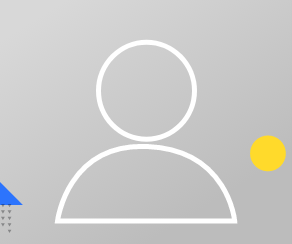Peter Rye, Ph.D.

Peter Rye
Senior Chemist
Agilent Technologies
B.S., Biochemistry, Syracuse University, NY
Ph.D., Biochemistry, Toxicology, DNA Damage, Massachusetts Institute of Technology, Cambridge
After earning his Ph.D. in biological chemistry in 2006, Peter Rye found himself part of the biotech merger and acquisition dance.
“I took a job with BioTrove, a company with 2 business units, Open Array and RapidFire. I worked in the RapidFire business unit,” he says. “In 2009, Life Technologies bought the Open Array business unit, allowing my business unit to "spin out" and become its own independently-operated company, BIOCIUS. In 2011, BIOCIUS was purchased by Agilent and I have worked there since.”
So while Rye’s resume looks varied, he’s actually been able to stay with the same group of people. “It has been valuable to work under small and big company structures,” he says. “They each have their pros and cons.”
Against a background of change, Rye works according to a favorite Indira Gandhi quote: "There are two kinds of people, those who do the work and those who take the credit. Try to be in the first group; there is less competition there."
Today at Agilent, much of his time is spent talking—and listening—to customers, working to customize solutions for their problems. “They come to us with a problem/challenge, and we get to engineer a solution,” Rye says. “It is fulfilling to help people with their lab needs.”
We all have things we need to do. Some of those things take 5 minutes, and some of those things take 4 hours. The trick is managing all those tasks to get as many done as possible.
Typical day on the job:
In a typical week, I will spend 25% of my time working on new applications in the lab, 50% of my time analyzing, planning, and discussing experiments with customers, and 25% of my time conducting research for customers in the lab.
Work environment:
My desk is located in a cubicle farm. I like that setting better than an office because it encourages discussion with colleagues. I have my own bench in the lab, which has space for up to 10 people. Usually, however, there are only 1-4 other people working at the same time. We have more than 10 mass specs, 10 RapidFires, many LC stacks, centrifuges, and everything else that you would find in a typical lab.
Work schedule:
I work just over 40 hours a week. Overtime is sometimes required at the end of the year when business accelerates, but in general the environment is not super stressful. We are all very busy, but it's not in an unhealthy way.
Tools you can't live without:
My work utilizes mass spectrometry. So, I like to have at least one of every kind of mass spectrometer possible.
Best productivity trick:
Time management. We all have things we need to do. Some of those things take 5 minutes, and some of those things take 4 hours. The trick is managing all those tasks to get as many done as possible.
Best career advice you've received:
Don't say no (often, at least). Shutting doors isn't a good way to get anywhere.
Skills or talents that make you a good fit for your job:
I listen more than I talk. It's hard to get anywhere with a customer if they don't think you understand their needs.
Essential habit you wish you'd started earlier:
When faced with a challenge or a new task, don't shy away. Determine what you need to know to get it done, figure out how you will come to know those things, and take action.

